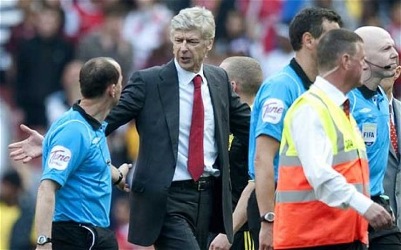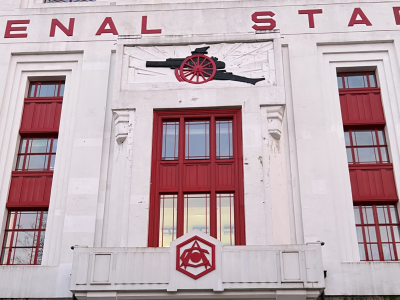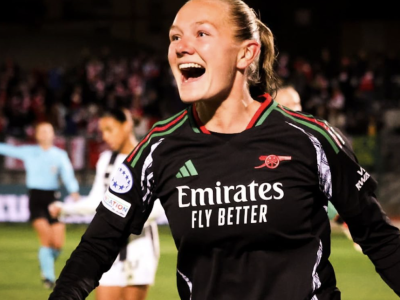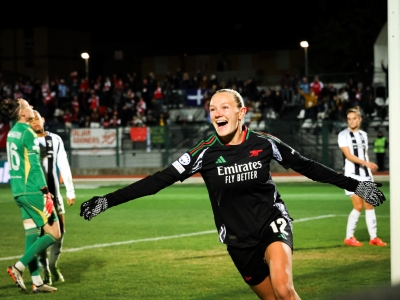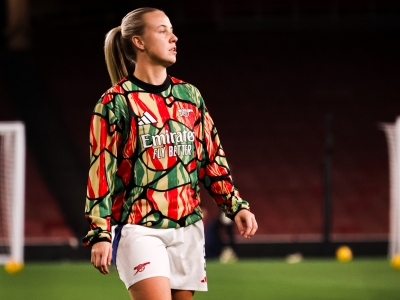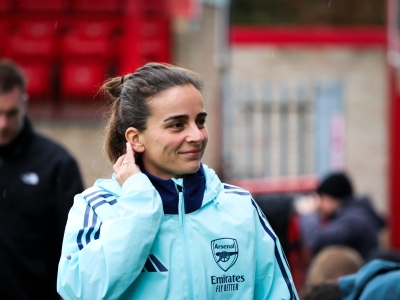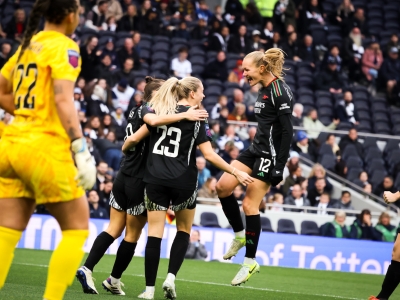Let me give you a rundown on my position on Arsene Wenger. In my three years of contributing to the Gooner I’ve been a staunch Wenger loyalist. My first article had praised Wenger’s faith in rearing raw talent as future prospects in contrast to the pervading culture of instant gratification in Football and also in wider society. In the final edition of the Gooner magazine last season I had warned that the free spending days of Chelsea and Man Utd that had helped them to pull clear of us in Football’s hierarchy were nearing a close and raised the possibility that, like Bill Shankly in the late 60s and early 70s, it was possible to return to winning ways after several trophyless season and thus urged patience with the Wenger project for another year at least. Before last October’s game against Chelsea I had warned that Wenger’s rule of spending within our means was prudent not just for the club, but for the stability of English football. As we approach the end of the sixth season since our last triumph however, my stance is beginning to change and I wish to elaborate here on the reasons.
I believe over the last few years I have accorded Wenger all that he was owed. I’ve given patience with the restructuring of the side to replace aging talent and deal with the debts of our necessary new stadium by investing in the development of young players. I’ve shown understanding of his need to deal with the market distortions created by our loss leading rivals – such as the terminally non-profit making and sugar daddy subsidizing of Chelsea or Man City, or the heavily indebted Man United or Liverpool. I’ve invested faith in a manager who has brought us not only past glories, but some of the greatest triumphs in our long and illustrious history. There too was a lot of sense in the Wengerite policy; Man United and Chelsea were both forced to scale back the spending over the last two years in order to remain a financially viable outfit. The petrodollars of the Middle Eastlands are also not able to buy Man City’s way to success in the same manner that Abramovich had been able to do on arrival eight years ago, due to their need for caution ahead of UEFA’s fair play rules. A lot of money has also been saved in the transfer market due to the bringing through of Jack Wilshere and no doubt a few others from the youth set up over the next few years will continue to save the club funds.
So why now turn into a sceptic of Wengerism? Well if the circumstances of any season promised deliverance for the Wenger project it was this one. If you need any further affirmation as to how weak the opposition is this year, look no further than the web pages of When Saturday Comes magazine. Anyone who has regularly frequented this site and its forum would testify how Pro-United and Anti-Arsenal it can often be. However as highlighted in this article there is an open acknowledgment among United fans of the view that this season ‘the quality at the top of the Premier League is so low that no club should be awarded the title this year’. Wenger himself, as well as many of his loyalists, have expressed that our progress this season can’t be that bad seeing that we are currently second in the table. In response, all I can say is what an embarrassingly misguided opinion from both Wenger and the pro-Wenger camp.
The on pitch profligacy shown by Arsenal this season has been utterly criminal – a brief summary of which includes losing a two goal lead at home to Tottenham, losing a four goal lead at St. James’s Park, taking one point from a possible six against terminally average sides like Newcastle and West Brom, meek surrender against Man Utd at Old Trafford in December, failure to score against relegation candidates like Sunderland and Blackburn at home, creating a fixture backlog for ourselves by failing to put away lower league opposition like Leeds Utd or Leyton Orient in the cups and the inability to build a steady winning run from March onwards. Even before our post-Wembley malaise after losing the Carling Cup Final, Arsenal should have been at least six points clear at the top of the Premiership. However the ineptitude of our opposition clearly isn’t enough for us to capitalise on. With just a one point cushion between us and Chelsea, it looks likely that even though both they and Man Utd are shadow of the sides that lined up against each other in Moscow three years ago, both will be finishing the season above us.
But surely coming second, even third and another Champions League qualification isn’t so bad, what of the pre-Wenger days when such expectation was nothing but a luxury? Again this argument from the Wengerites misses the point. If Arsenal are where they are as a result of playing to the top of their ability but just not being as good as an exceptional opposition, you could be philosophical in relation to our failure. But let’s be honest – this really isn’t the case, is it? Also young players who are developing need time to fail and thus learn from failure – like the Arsenal side prior to 1971 and even with the Graham era at times. However there is no sign that this set of players are learning anything from previous mistakes – look how much of this season is a repeat of 2007/08. Inept defending like Eboue’s against Liverpool and the Wembley debacle in February perfectly mirrors Clichy’s mistake at St. Andrews in 2008, as well as the endless draws in the League after failing to win that day which cost us the title, happening all over again this season.
Lest we forget also that 2007/08 was the season when Herbert Chapman’s legacy was thrust in our direction with the white kit in his honour. Wenger has often been spoken of as upholding Chapman’s legacy, being the only other Arsenal manager to have a bust in his honour. However, it was during the Chapman era when Arsenal developed their so-called ‘highest moral standards’ of how to conduct themselves in the correct manner. Is Wenger really upholding these standards with his tirade at Kenny Dalglish at the final whistle yesterday? I suppose it is Kenny’s fault that Eboue doesn’t know how to defend, is it? If anything Kenny’s wish not to divulge the matter to Sky Sports and admonishing the interviewer for concentrating on the exchange between the two, rather than the footballing display makes him morally superior to Wenger, who merely looks like a petulant sore loser in comparison.
On the subject of a superiority complex, Wenger and his loyalists have often pretentiously extolled the virtue of our brand of football - the reality however is often the ability to string 600 passes together in a game, hold two thirds of possession and still habitually fail to score in open play through over-passing. Not to mention the other little quirks of the post-Invincibles incarnation of ‘Wengerball’ like often failing to treat a set piece like a corner or a free kick as the potential goal scoring opportunity that they quite obviously are. We’ve seen remnants of the aforementioned failings dating back at least to around 2006. People are asking the question ‘Does Arsene still know?’ they should really be asking the question ‘Does Arsene still learn?’ because quite clearly he’s learned little over the last five years. These holes in our armoury are so substantial that they often make the argument surrounding our financial reserves irrelevant – after all, if you are imprudent on the pitch what does it matter how much you’ve got in the bank to spend?
In relation to spending, it’s also worth once again invoking Herbert’s legacy. Sir Henry Norris’s advert in 1925, to which Herbert replied, had stated that ‘Gentlemen whose sole ability to build up a good side depends on the payment of heavy and exorbitant transfer fees need not apply’. Chapman’s predecessor Leslie Knighton had been subject to a strict cap of no more than £1000 for each transfer fee, while the British record had been around five times this amount. What the incumbent board are less inclined to dwell on is that part of Chapman’s legacy was convincing his chairman to loosen his purse strings in order to attract proven talent and proven winners to a side that had never previously won anything and in all probability wouldn’t have won anything under the fiscal policy which Norris imposed on Knighton. Also, the white kit introduced in Herbert’s honour came with the advertising slogan ‘Never Stand Still’. However Wenger’s league record since 2005 reads thus – 4th, 4th, 3rd, 4th, 3rd. Currently we’re two points ahead of third place Chelsea and at this moment unable to gain three points for love nor money. If that's not standing still, I don’t know what is.
And what of our perceived lack of ability to compete in the transfer market which has been trotted out by the Wenger loyalists as mitigation for the seemingly perennial weakness of our squad come the climax of each season? Well most estimates of Arsenal’s finances have been that Wenger does have money at his disposal, though he has chosen not to spend despite the fact that depth of his squad has shown itself to be insufficient for at least four seasons on the bounce. If this is purely his decision, then Wenger is guilty of professional negligence. If this is forced on him by the board, Wenger should have played brinksmanship with the board long ago and forced them into allowing him to spend money that’s within the club’s means by threating to hand in his resignation. Also, as alluded to in my article in March where Wenger has been praised for making savings in his transfer market dealings, the lack of depth to his squad has resulted in income lost in another direction and hence are if anything a false economy.
A successful Champions League campaign this season, as well as winning the two group fixtures we lost against sides we previously beat at home by five or six goals, could have earned Arsenal around £16 Million more than they actually did accrue this season in prize money. Considering that Arsenal accrues around £3 million a match day, home fixtures in Champions League Quarter Final and Semi Finals would therefore have accrued Arsenal another £6 Million. Also, the gap between places in the Premiership with regard to prize money is around £800,000, therefore should Arsenal fall to third they will reap £1.6 million less than they would by winning the Premiership. Taking the above into account Arsenal could have accrued around £23.6 Million more this season with a stronger squad – a figure which of itself may have paid for decent centre half or goalkeeper. Therefore expenditure on strengthening his squad may well have paid for itself in the long run.
There are also other possible side effects that can result from Wenger’s so-called prudence in the transfer market. Arsenal’s business plan was formulated pre-credit crunch and highly reliant on fans willing to pay top dollar to attend football matches. As admission fees will rise next season while real wages are falling, if Arsenal are not seen as being competitive with regard to challenging for major honours the club are in effect asking fans to pay more for less. The result of another season of spirit crushing underachievement, coupled with a recession, will likely be that less people will renew season tickets and memberships next season. How could the club have avoided this? Well as with the example of the upcoming Royal Wedding, even in recession there is always money to be made in the escapism of ‘Bread and Circuses’. Though people can increasingly ill afford to retain their season tickets, the feel-good factor of a title or major trophy would have meant people would have tolerated the expense for another season at least and also with it an opportunity to increase merchandise sales that a trophy win usually brings.
It is therefore hard to see this season as anything other than a great opportunity lost, one for which ultimate responsibility falls solely on Wenger’s shoulders. Considering what Wenger has achieved previously, nothing would give me greater pleasure than to see the Wenger project succeed. The fact of the matter is though; his past successes do not give Wenger a job for life at Arsenal. After all, if being greatly successful in your job and being lauded to high heaven during the late 90s and early 00s means you are unsackable in 2011 then ask yourself why Gordon Brown doesn’t still have a hands on role in running the British economy these days? In the late 90s Wenger was the man to save Arsenal from the turgid football of a George Graham side floating adrift on a sea of ill-discipline and alcoholism, a role which Bruce Rioch laughably fell a long way short of. He was the man who stabilized this club to a large extent and kept them in the Champions League when finances were eaten up by the Ashburton Grove project and horrific wage inflation caused by Roman’s roubles. Is he the man to lead Arsenal into the next decade by taking advantage of our rival’s weaknesses and rebuilding an Arsenal capable of doing more than just enough to qualify for the Champions League each season? Sadly, all the evidence provided this season suggests that not to be the case.

